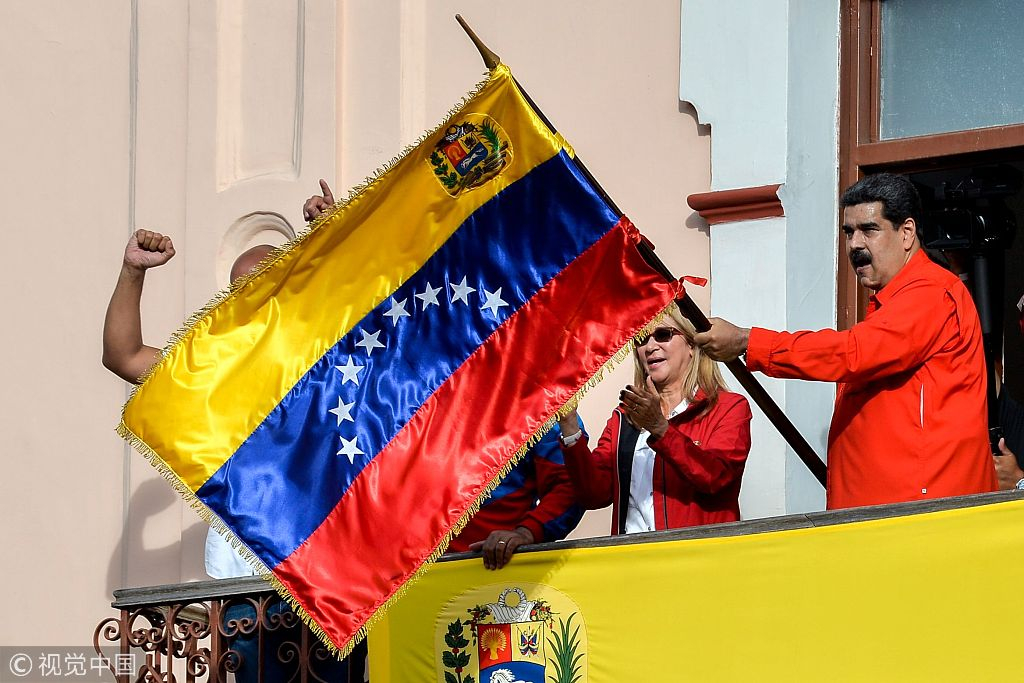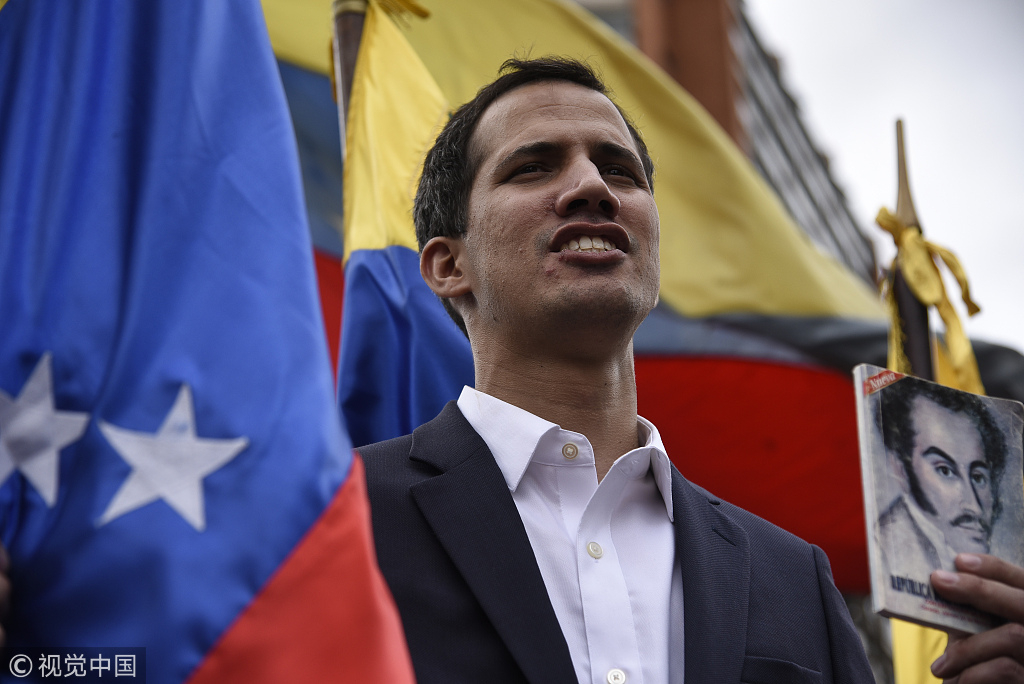
Opinion
20:23, 24-Jan-2019
Opinion: Trump’s 'stick' strategy towards Latin America has backfired
Zhao Yuanzhen

Relations between the U.S. and Venezuela have hit a new low as Venezuelan President Nicolas Maduro cut diplomatic relations with the U.S. on Thursday after the Trump administration recognized opposition leader Juan Guaido after he declared himself interim president.
Since Trump became president, tensions between the two countries have only escalated. The Trump administration refused to recognize Venezuela's election results, which saw Maduro securing a second term, and condemned the Maduro government as an illegitimate regime. It placed new sanctions on Venezuela, a country that's already experiencing an economic crisis.
“The relationship between the two countries has always been on a bumpy road, but this time it was definitely an all-time low moment for the two countries. It would further destabilize the situation in Latin America, where solidarity and stability is needed to solve the economic and immigration crisis,” said Jiang Shixue, a professor at the Institute of Global Studies at Shanghai University.
After Trump's bold and swift announcement that it would support the new acting president, Canada, Brazil, Colombia, Chile, Peru, Ecuador, Argentina, Paraguay and Costa Rica quickly followed suit; whereas Mexico announced that there would no change of policy and Bolivia voiced support for Maduro.

Venezuela's President Nicolas Maduro (R), flanked by his wife Cilia Flores (C), holds a Venezuelan flag during his speech from a balcony at Miraflores Presidential Palace to a crowd of supporters, January 23, 2019. /VCG Photo
Venezuela's President Nicolas Maduro (R), flanked by his wife Cilia Flores (C), holds a Venezuelan flag during his speech from a balcony at Miraflores Presidential Palace to a crowd of supporters, January 23, 2019. /VCG Photo
It seems that Washington's commitment to overthrowing the Maduro government has made Latin America more divided than ever, hurting U.S.-Latin America relations in the process.
After Barack Obama took power in 2008, the U.S. promised to build an “equal partnership” with Latin American countries, but Trump' s infamous “America First” foreign policy has swept Obama's efforts and put U.S.-Latin America relations on trial. Two years of his presidency has seen rare visits to Latin American countries and he has severely damaged the country's relationship with Mexico over the border-wall issue.
Nevertheless, whether it is a discourse of partnership or threats on more sanctions, they are all guided by the basic Monroe Doctrine which sees Latin America as America's backyard and will not tolerate any anti-U.S. left-wing regime.
Some analysts have pointed out that Trump's strategy towards Latin America has been consistent with his tactics of diverting attention from domestic pressure.
In the case of Venezuela's exacerbating economic crisis at home, Trump has exploited the occasion and made his intervention seem almost legitimate to the international society.
Later today, while speaking on this matter, Chinese Foreign Ministry Spokesperson Hua Chunying pointed out that external sanctions and intervention would complicate the current situation, rather than put the real issues into perspective. And even if the new leader succeeds in taking power, will he set the country on a road to prosperity?

Juan Guaido, president of the National Assembly, sings the national anthem during a pro-opposition rally in Caracas, Venezuela, January 23, 2019. /VCG Photo
Juan Guaido, president of the National Assembly, sings the national anthem during a pro-opposition rally in Caracas, Venezuela, January 23, 2019. /VCG Photo
Not likely, according to Jiang. “The crisis in Venezuela has its own historical background complicated by international influence and structural issues. It won't be resolved by simply changing to a new leader."
But the more urgent question facing the country now is where to go forward from the current turbulence. The whole world is watching Maduro's next move, raising concerns over a new potential round of energy sanctions, further worsening Venezuela's crisis at home and its relations with the U.S.
“I am rather pessimistic about [what] the future holds for the two countries. Venezuela has already cut diplomatic relations with the U.S. and [that] will not likely change unless there are structural changes at home under[the] Maduro government,” says Jiang.
With a migrant caravan already causing a humanitarian crisis at U.S. border, it seems rather unlikely that the Trump administration would overthrow the Maduro government by military force despite Trump's claim that “all options are on the table,” but Trump's endorsement and the break between two countries has certainly pulled the trigger to a more unstable Latin America.
(If you want to contribute and have specific expertise, please contact us at opinions@cgtn.com.)

SITEMAP
Copyright © 2018 CGTN. Beijing ICP prepared NO.16065310-3
Copyright © 2018 CGTN. Beijing ICP prepared NO.16065310-3